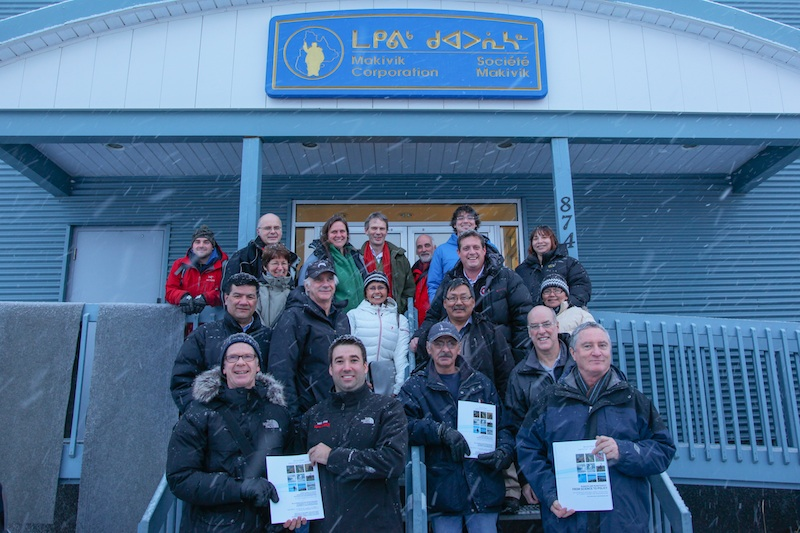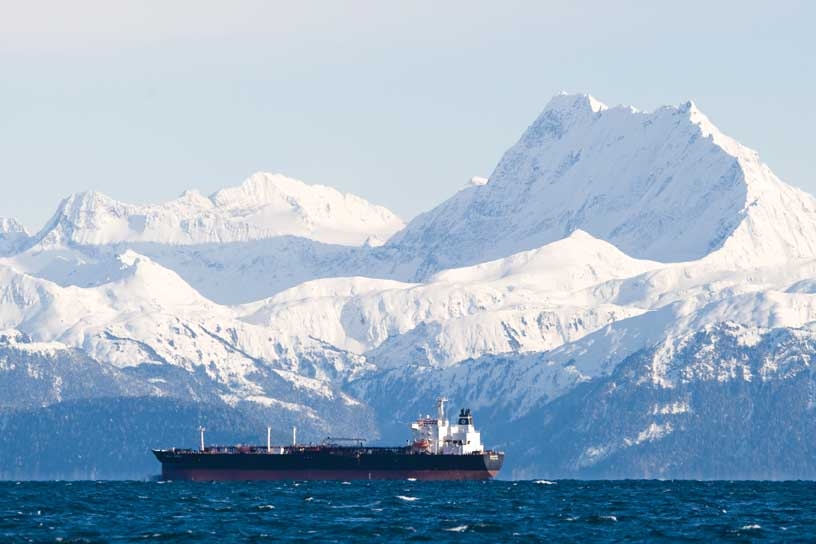
Together, Tackling the Impacts and Opportunities of the Changing Canadian Arctic
Representatives from Nunavik, Nunatsiavut and ArcticNet at the November 29, 2012 release of the report, “Nunavik and Nunatsiavut: From Science to Policy. An Integrated Regional Impact Study of Climate Change and Modernization.” (Photo courtesy of ArcticNet)
Climate change and modernization are having significant impacts on the people and the ecosystems of the Canadian Arctic. ArcticNet, a Network of Centres of Excellence of Canada, is working together with its partners in the four Inuit regions of Canada: the Inuvialuit Settlement Region, Nunavut, Nunavik and Nunatsiavut as well as stakeholders from the public, private and government sectors to focus its research efforts on priority issues for Canadians, as they deal with the challenges and opportunities of this transformation.
As part of this ongoing effort, ArcticNet released the first of four regional impact studies, Nunavik and Nunatsiavut: From Science to Policy. An Integrated Regional Impact Study (IRIS) of Climate Change and Modernization at an event in Kuujjuaq, Nunavik, Québec on November 29, 2012. The document is a synthesis of research results, and most importantly, recommendations to policy makers highlighting key topics of concern for Canadians such as human health, safety and security, infrastructure vulnerability, and resource exploitation in the changing Canadian North.
The study was presented to Nunavik’s Kativik Regional Government Council (http://www.krg.ca) and Makivik Corporation (http://www.makivik.org) and was extremely well received by all with Maggie Emudluk, Chair of the Kativik Regional Government, stating, “This study is a great tool to express our needs…. This work will help us in our community consultations as we continue to develop Parnasimautik (Plan Nunavik).”
![Kujjuak KRG presentation[1]](http://www.ottawalife.com/admin/cms/images/large/Kujjuak-KRG-presentation1-250x140_1.png)
Johannes Lampe, Minister of Tourism, Culture and Recreation for the Nunatsiavut Government was also pleased with the results of the report, commenting, “The ArcticNet Integrated Regional Impact Study presents a unique foundation for synthesizing research through integrated, co-managed projects that are meaningful to Nunatsiavut and the Arctic community as a whole, while allowing the region to continue to evaluate and expand existing studies, with a focus on the health and well-being of Labrador Inuit.”
Over the coming months ArcticNet and its partners will continue to work on the production of three other regional impact studies, with the goal of producing recommendations for all four regions of the Canadian Arctic and sharing these results with policy makers at the regional, provincial and federal levels.
The regional impact study and summary for policy makers can be accessed online through ArcticNet’s website: www.arcticnet.ulaval.ca/media/iris_reports.php
ArcticNet is a Network of Centres of Excellence of Canada that brings together scientists and managers in the natural, human health and social sciences with their partners from Inuit organizations, northern communities, federal and provincial agencies and the private sector. ArcticNet’s objective is to study the impacts of climate change and modernization in the coastal Canadian Arctic. Over 150 ArcticNet researchers from 30 Canadian universities, 20 federal and provincial agencies and departments collaborate with research teams in Denmark, Finland, France, Greenland, Japan, Norway, Poland, Russia, Spain, Sweden, the United Kingdom and the USA.








